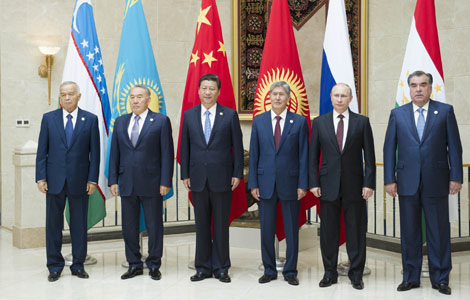Succession proves a tricky art in business
Updated: 2013-09-16 08:15
By Zhang Chunyan and Qiu Bo in London (China Daily)
|
||||||||
"The management of this company certainly knows how to run a business and develop it in step with the times," he says. "It's very professional."
At Fleming Family & Partners, Matthew Fleming, the fifth-generation of the Fleming family, told the Chinese businessmen the story of his family. Matthew Fleming is now a director of FF&P Private Equity, FF&P Wealth Planning and works across the group developing business and relationships.
Ling says the tenacity of the Flemings and their ability to reinvent the business is impressive. In 1873, Robert Fleming, a Dundee merchant, started a bank after spotting an opportunity to invest in the nascent railways of the United States. In the 1970s the family, advised by a veteran financier, decided to sell the bank to Chase Manhattan for 4.9 billion pounds ($7.7 billion), at what proved to be the top of the market.
It was a controversial decision, Ling says, but "the Fleming family's most important requirements for every generation are the strong interest and sense of family business, sense of historical mission, sense of honor of the family".
"They have formed a well-developed family inheritance mechanism," Ling says.
British family firms have perfected methods for selecting successors and succession teams and benefit from modern business management, he says, all of these promoting continuation of family businesses and the development and innovation of technology.
When it comes to Chinese young rich second-generation entrepreneurs, Ling says: "We should remember that honor and responsibility are very important."
"Honor is created and built up by our fathers' generation of entrepreneurs by overcoming difficulties. Responsibility will help us carry forward the spirit of entrepreneurship and further develop business."
Opportunities can sometimes open by switching from one industry to another, even if pitfalls lie in store, he says. "In a well-developed market, such as Britain, we saw that family businesses are enduring entities that score great successes."
Pedro Nueno, president of the China Europe International Business School, told a forum in June: "The current primary goals for these second-generation family enterprises are business transformation and upgrades, sustainability, accumulation, preservation and the inheritance of family wealth."
The Hurun Wealth Report 2013 says the number of Chinese millionaires - those with a personal wealth of 10 million yuan ($1.63 million) or more - has increased to 1.05 million this year, 30,000 more than a year earlier.
The number of the super-rich, those with personal assets worth more than 100 million yuan, has risen by 1,000 to 64,500.
Looking at the experience overseas will also help teach China's rich second generation how to understand the differences between themselves and their parents, experts say.
The rich second generation have their own views on their fathers' careers. They say the sound environment created by reform and opening-up, opportunities and proper management were among the three most important factors that contributed to their fathers' success. And they attribute their fathers' success to their hard work and hardship endurance.
Roger King, director of the Tanoto Foundation Center for Asian Family Business and Entrepreneurship Studies at Hong Kong University of Science and Technology, says: "Convincing the older generation to change has always been a challenge for the second generation, who need to find an appropriate way of communicating with their parents to help them understand modern business concepts."
So long as the younger and older generations have the same goal of preserving "wealth, legacy and harmony", they will be able to find a balanced way to create a smooth line of succession for the family businesses, King says.
Unlike their parents, who built their wealth from scratch, those of the second generation are often criticized for inheriting huge assets and are labeled as a generation with less responsibility and an inclination to hedonism.
But Chen says members of the Relay China Youth Elite Association do not sit idly by and enjoy the fruits of their parents' work. "Young successors are under more pressure because they have high beginnings," he says.
"We want to prove that the generation of the young rich can do family business well, contribute to society according to their abilities, and help with continued robust economic growth for China."
Yu Ran contributed to this story.
Contact the writers through zhangchunyan@chinadaily.com.cn.
Most Viewed
Editor's Picks

|

|

|

|

|

|
Today's Top News
Japan switches off nuclear reactor
Summers withdraws from Fed chair contest
Chinese FM hails US-Russia deal
More foreigners get green cards
Scientists make land arable again
Fallen celebrity blogger says Net needs cleanup
Request for blood of female virgins misread
WB shares green path with China
US Weekly

|

|















